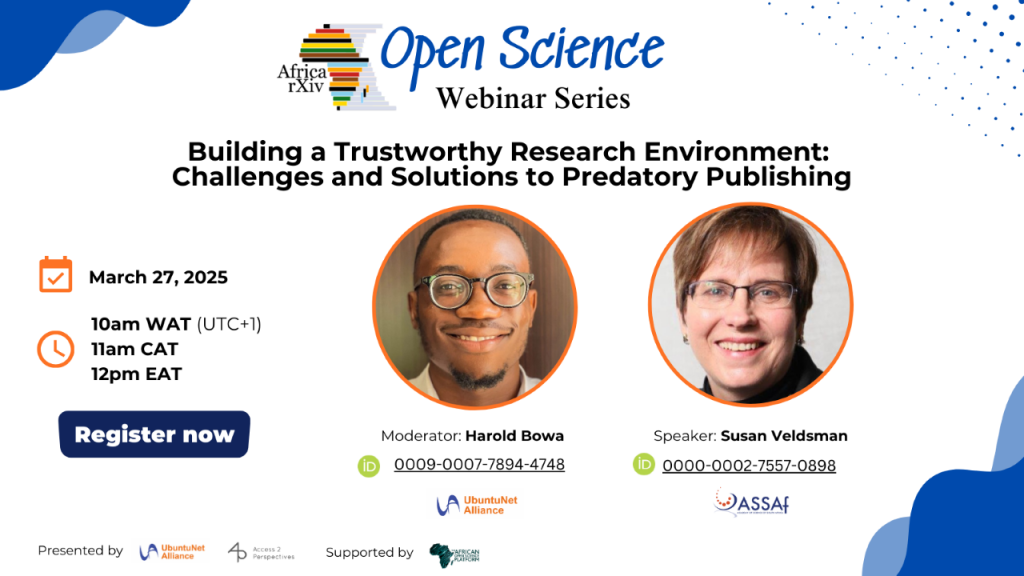The AfricArXiv Open Science Webinar series, a collaborative initiative by UbuntuNet Alliance and Access 2 Perspectives, with support from the Africa Open Science Platform, continues to foster critical discussions around Open Science. This webinar series aims to advance the principles of Open Access, research integrity, and equitable knowledge dissemination across Africa’s research ecosystem.
On 27th March 2025, the latest session in the series delved into the pressing issue of predatory publishing a practice that prioritizes financial gain over scholarly integrity. With a peak attendance of 104 participants, the webinar brought together researchers, academics, and Open Science advocates to explore the impact of predatory publishing on scholarly communication, particularly in Africa.
The session was expertly led by Susan Veldsman, Director of the Scholarly Publication Unit at the Academy of Sciences in South Africa. With a distinguished career dedicated to enhancing the visibility, discoverability, and quality of South African research, Susan has been at the forefront of Open Science advocacy. She has played a pivotal role in shaping policy frameworks for publicly funded research and was recently recognized for her contributions to SciELO SA. Her extensive expertise added immense value to the discussion.
In her presentation, Susan defined predatory and unethical practices in academic journals and conferences, showcasing that predatory publishing exists on a spectrum and convers multiple facets. She went on to gauge the prevalence and impact that it has on authors and publication in general. Moving on, she broke down the primary drivers and root causes of predatory publishing practices. Before concluding by providing concrete recommendations for a global strategy to address the problem, she examined efforts to combat predatory journals and conferences around the world.
The discussion underscored how traditional research evaluation systems and evolving Open Access models, while beneficial, have also provided opportunities for predatory publishers to thrive. With researchers under increasing pressure to publish, it has become more critical than ever to distinguish legitimate publishing avenues from exploitative ones. The high turnout for this webinar underscores the urgency of addressing predatory publishing and equipping researchers with the knowledge to navigate the scholarly landscape responsibly.
To revisit this insightful discussion, you can access the presentation slides here and watch the webinar recording here.
For updates on upcoming sessions and more Open Science discussions, follow AfricArXiv on LinkedIn and Twitter.

